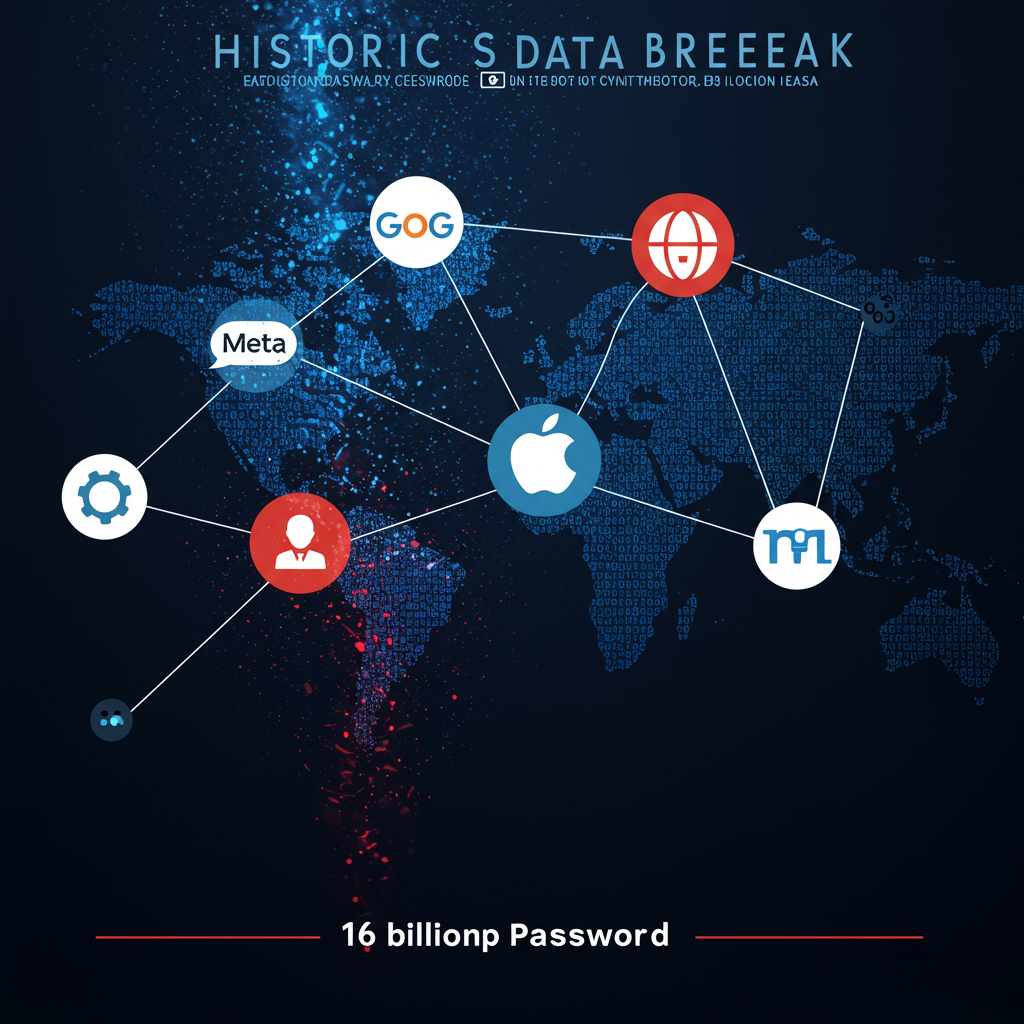Urgent Cyber Alert: 16 Billion Passwords Exposed in Historic Data Breach
Prepare yourself: cybersecurity researchers have just confirmed what is being described as the largest data breach in history, revealing an astonishing 16 billion leaked login credentials, including passwords. This figure dwarfs previous major leaks and serves as a stark warning about the state of online security.
Investigating since the start of the year, researchers at Cybernews discovered 30 exposed datasets containing records ranging from tens of millions to over 3.5 billion each. Cumulatively, these datasets hold the staggering total of 16 billion compromised records, confirming this collection as potentially the biggest password leak ever recorded.
Why This Massive Breach is Critically Dangerous
Password compromise isn’t just inconvenient; it’s the gateway to account takeover and the potential loss of access to sensitive personal and financial information. In our increasingly digital lives, a stolen password can jeopardize almost everything. This is precisely why major players like Google are urging users towards more secure methods like passkeys, and why law enforcement, like the FBI, constantly warns against phishing attempts.
These billions of stolen credentials are not just lying dormant; they are actively bought and sold on the dark web for minimal sums, making them readily available to cybercriminals. This latest revelation is therefore profoundly concerning for individuals and organizations worldwide.
The researchers warn that this collection of credentials is not merely a leak but a “blueprint for mass exploitation.” Unlike some breaches that recycle old data, much of this intelligence is described as “fresh, weaponizable intelligence at scale.”
The leaked information is typically structured in a format like a URL followed by login details and a password. This simple format opens the door to compromising access for a vast array of online services.
Are Your Accounts at Risk? Affected Services and Data
The 16 billion strong leak encompasses billions of login credentials from a huge variety of online services. This includes data from:
Social Media Platforms: (e.g., Meta – Facebook)
Major Tech Vendors: (e.g., Apple, Google)
VPNs
Developer Portals: (e.g., GitHub)
Messaging Apps: (e.g., Telegram)
Various Government Services
Essentially, the data could potentially allow access to “pretty much any online service imaginable,” highlighting the widespread threat posed by this breach.
Researchers postulate that the immense scale of this leak is likely the result of multiple malicious software programs, known as infostealers, working together over time.
What You MUST Do Right Now
This unprecedented leak underscores that cybersecurity is a shared responsibility. While organizations must enhance their protective measures, individuals must take immediate action to secure their digital lives. Don’t wait to find out if your credentials are among the leaked billions. Act now.
Here are the essential steps you need to take immediately:
- Change Your Passwords Immediately: Start with your most critical accounts: email, banking, social media, and accounts linked to payment information. Choose strong, complex passwords that are difficult to guess.
- Use Unique Passwords for Every Account: Reusing passwords is one of the biggest risks. If one password is leaked, attackers can use it to access all other accounts where you used the same combination. A unique password for each service is crucial.
- Embrace Multi-Factor Authentication (MFA): Enable MFA (also known as two-factor authentication or 2FA) on every account that offers it. This adds an extra layer of security, usually requiring a code from your phone or a physical key in addition to your password, making it much harder for attackers to gain access even if they have your password.
- Use a Reputable Password Manager: Managing dozens of unique, strong passwords is impossible manually. A password manager securely stores your passwords, generates complex new ones, and often auto-fills login fields, simplifying security.
- Explore Passkeys: Where available, switch to passkeys. Passkeys replace traditional passwords entirely with a cryptographically secure login method linked to your device (like your phone or computer). They are significantly more resistant to phishing and breaches.
Taking these steps now is your best defense against the potential fallout from this historic password leak. Your online security depends on it.




